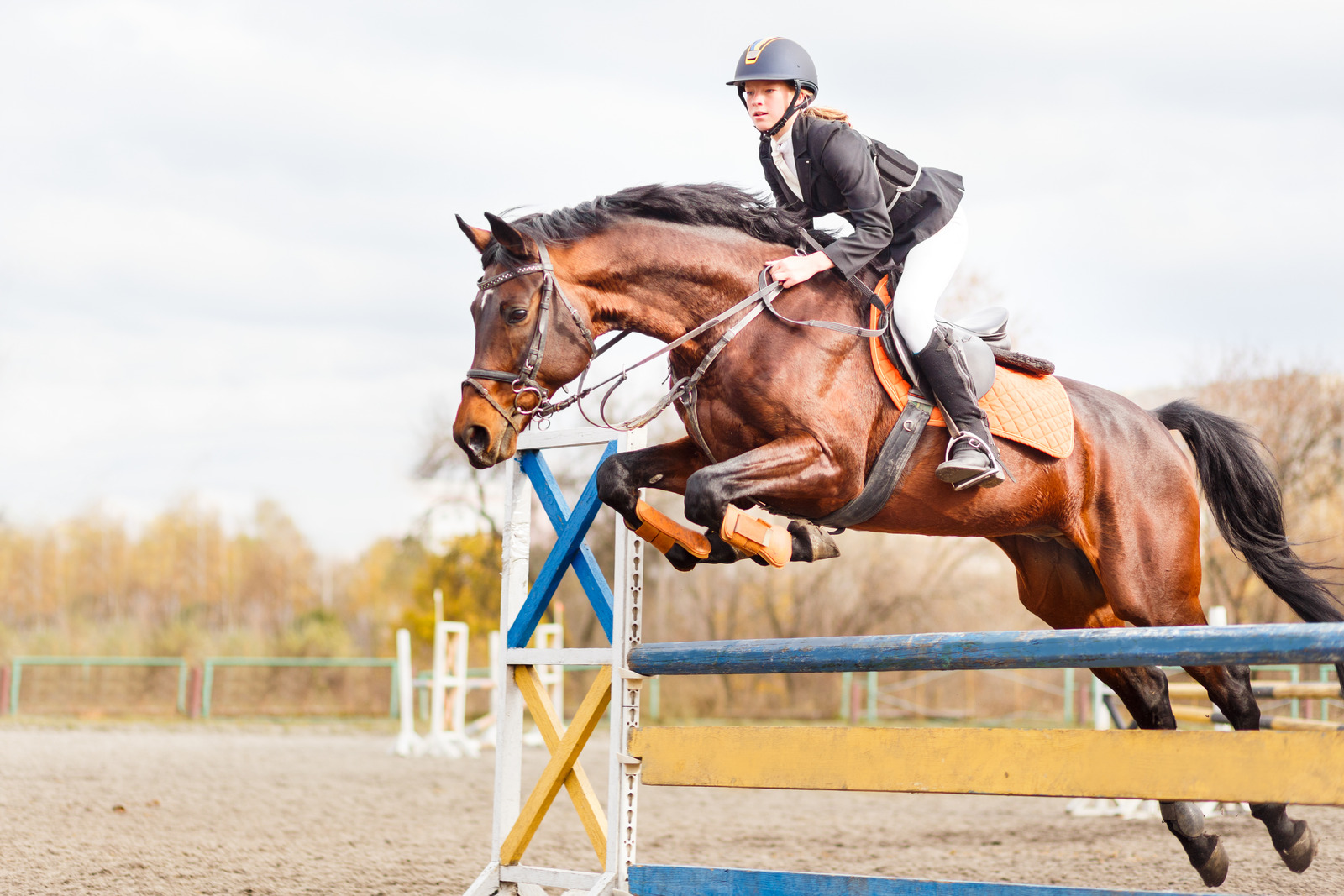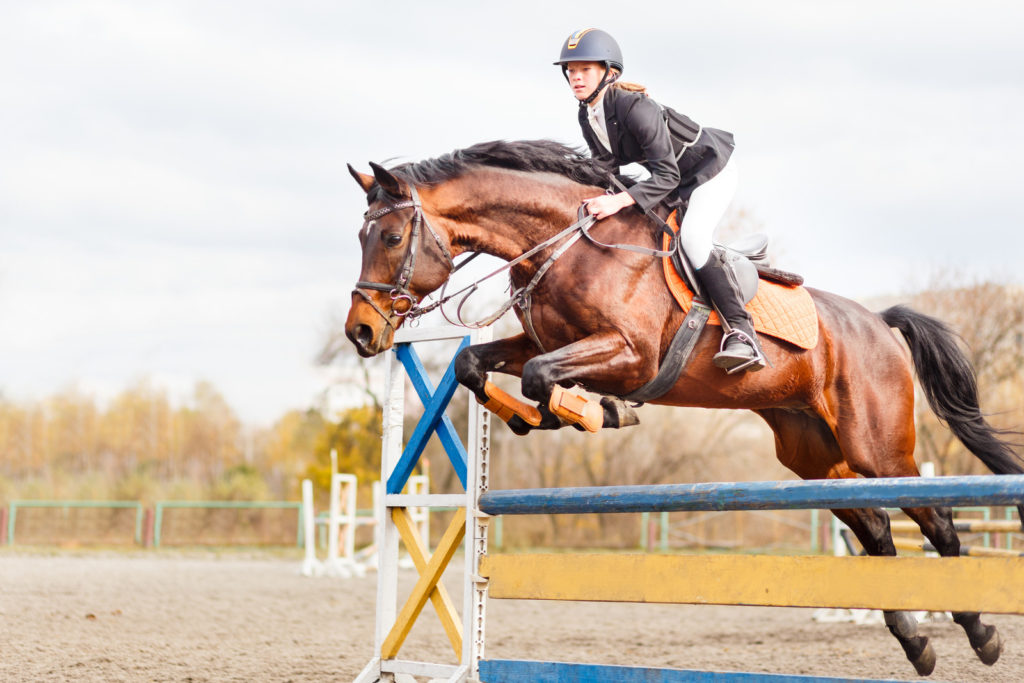While back pain may be a familiar problem to horseback riders, whether they’re just starting out or riding regularly, it’s a problem that should not be ignored. Back pain during or after riding is often a sign of poor spinal alignment. Whether you are training in disciplines such as show jumping, eventing, or dressage, taking lessons to learn basic riding techniques, or are a practiced recreational rider, proper balance and posture are critical for achieving your best performance.
Proper Movement and Support in Riding
The spine is naturally curved outward at the top and inward at the bottom. When you are standing or sitting up straight, those curves are balanced from your head to your pelvis. That posture, with hips and shoulders balanced above the feet, is the position riders are meant to maintain in both English and Western styles of riding. Maintaining it while riding without putting undue strain on the back, however, is the challenge.
While the hips and spine should move to absorb the motion of the horse as you ride, too much motion or not enough motion in the right places can produce uneven stresses and pain in the back. One of the most important factors is core strength because without sufficient muscle tone in the torso the spine will move too much during riding. On the other hand, if muscles in one part of your spine or torso are too tense, not allowing enough movement, the rest of the spine will move more to compensate, putting those areas under increased stress.
A common root of back pain in horseback riding is improper hip alignment and movement. The hips need to be able to move to follow the motion of the horse, which helps to evenly distribute the energy of that motion through your spine. To do this, the pelvis should be in a neutral position in the saddle; if it is tilted too far forward, exaggerating the inward lower curve of the spine, it reduces the possible range of hip motion and tends to strain the lower back.
Sacroiliac joint dysfunction, affecting where the two iliac bones connect with your sacrum, is a common back injury among horseback riders. These joints aren’t meant to move very much, and when they move too much or too little, inflammation and pain can result. Riders can also be prone to herniated disks, from prolonged, repeated stress on the back.
What Improper Alignment Does
Improper alignment in the saddle throws the rider out of balance. Once that happens, they will instinctively try to regain that balance by using other muscles, such as gripping the saddle harder with their legs or rocking the body above the waist. This tends to produce even more stress on the lower back. It also means that the rider’s weight is constantly shifting over the horse, straining the horse’s back as well. Therefore, fixing a rider’s back problems has a beneficial effect on their overall riding form as well as on their health and comfort in riding.
Fixing the Problem
If you’re experiencing back pain during or after riding, you should consult the specialists at Divine Spine before it gets any worse. We start with a comprehensive exam process to determine the root cause of your pain. Your care plan will include treatment options for your existing pain as well as preventative care that will help improve your core strength and alignment to protect again future injury. Our state-of-the-art Electronic Vertebral Alignment (EVA) system delivers precise, gentle spinal adjustments with no twisting or sudden movements, safely restoring the range of motion in your spine without discomfort.
Divine Spine has recently opened an additional location in the City of Orange, allowing us to serve more patients throughout Orange County with our unique brand of chiropractic care. We can help you live your best active, pain-free lifestyle with treatment expertly tailored to your needs. To find out more about our services or to schedule a consultation, contact us here.



